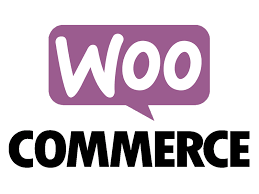WooCommerce vs Shopify
Do you already have a WordPress website and do you want to start making online sales? You can either use a WooCommerce-plugin or connect your website to Shopify. What are the advantages and disadvantages of WooCommerce versus Shopify for WordPress-users?
WooCommerce and Shopify are two of the most popular ecommerce software solutions for WordPress users. They’re well-known for their accessible and easy-to-use software. Though they are similar, there are notable differences in terms of hosting and their checkout options.
What is WooCommerce?
 WooCommerce is a plugin for WordPress that adds online store features to your website. Just like WordPress, it’s open source which means that the code is accessible for everyone. The plugin is free, but because it’s open source you will need to take care of hosting yourself.
WooCommerce is a plugin for WordPress that adds online store features to your website. Just like WordPress, it’s open source which means that the code is accessible for everyone. The plugin is free, but because it’s open source you will need to take care of hosting yourself.
The free option has enough features if you’re selling a small product range. Once you start selling more you will need to add paid extensions for better performances.
The WooCommerce plugin for WordPress is free.
Integrating WooCommerce with WordPress
 To integrate WooCommerce in your website you’ll need to download the plugin and install it. After that, you can decide whether you’re going to use an existing theme or create an online store according to your own design.
To integrate WooCommerce in your website you’ll need to download the plugin and install it. After that, you can decide whether you’re going to use an existing theme or create an online store according to your own design.
We advise going for an existing theme, because the making a customized online store adds a lot of costs to the equation. Though more limited, the existing theme is also customizable. After you’ve set up your theme, you can start installing the features you need like a checkout system.
What is Shopify?
 Shopify is a hosted ecommerce software package. This means that your online store will be hosted by a server of Shopify. For a fixed monthly rate you’ll get to use the software.
Shopify is a hosted ecommerce software package. This means that your online store will be hosted by a server of Shopify. For a fixed monthly rate you’ll get to use the software.
This is the case when you’re launching a Shopify Shop. If you’re going for the shopping button, Shopify Lite, things work a little different than in WooCommerce.
The shopping button can only be used in combination with an already existing website, in this case a WordPress-website. This means that all processes will be within your own domain, except for the checkout.
With Shopify Lite you can easily start selling products in your WordPress-website.
In contrast to the free WooCommerce-plugin, the shopping button does cost money. In mid-2021, the button costs nine dollars per month. The price is fixed and it doesn’t matter if you place multiple shopping buttons on your website or just one.
Once your product range grows and you start selling more, using these buy buttons will take a lot of work. Many online store owners use another option at that point. But theoretically, you could start selling your products for 9 dollars a month.
Integrating Shopify with WordPress
 Once you buy the Shopify plugin, it will be added to your Shopify admin menu. Within that menu, you can design the buy button. There are serval layouts and colors available. Keep in mind that you should select whether you’re integrating the buy button with one product or a whole collection. In the latter case, the button contains all variants of the product.
Once you buy the Shopify plugin, it will be added to your Shopify admin menu. Within that menu, you can design the buy button. There are serval layouts and colors available. Keep in mind that you should select whether you’re integrating the buy button with one product or a whole collection. In the latter case, the button contains all variants of the product.
After designing your buy button, you place an order with Shopify and it will be created. Shopify generates a code that you’ll need to add to the page where you want the button to be placed. The button contains your checkout functionalities. After saving your page you can start selling!
Differences between WooCommerce and Shopify
The biggest difference between WooCommerce and Shopify arises because of their hosting. WordPress is open source, while Shopify isn’t. This means that with Shopify, you are somewhat limited in your options. In WooCommerce, you can decide the complete design and in Shopify you’ll need to make do with what they offer.
However, there are some benefits to not having access to a code. A big advantage is that you won’t be able to break any essential code. You also run less risks of getting your cash register hacked.
WordPress and WooCommerce are not only popular among retailers but also among people who have the wrong intentions with them. With Shopify, that danger is much smaller. Updates are installed automatically, so your cash register always remains up-to-date, which should give proper protection to the code.
Payments and checkout
With Shopify you have two payment options: products can be checked out immediately or (if you sell multiple products) they can be added to a shopping cart. Both payment systems are closed, so you can’t make changes yourself.
With WooCommerce you host the software yourself and you can make adjustments in the checkout yourself. That works for people who want maximum freedom, but if your programming knowledge is limited, this can easily lead to a non-working POS system in the worst case.
Additionally, Shopify offers a clear management system, which makes this software just a little easier to use. Another advantage of Shopify is that you can also create payment links from the management environment. You can use these links, for example, for email campaigns or social media messages. When the reader clicks on the link, the item is added to the checkout, after which it may or may not be purchased.
Shopify vs WooCommerce: which software solution is the best?
 Both solutions are very suitable for creating a shopping experience for your customers. Which solution is best for you mainly depends on the size of your product range and the degree of freedom you want.
Both solutions are very suitable for creating a shopping experience for your customers. Which solution is best for you mainly depends on the size of your product range and the degree of freedom you want.
If your WordPress website is now actively maintained by a good internet agency that also understands WooCommerce, this solution is the easy and logical choice.
Both solutions are suitable for online selling.
Do you do everything yourself and is the blog or current site still doable, but is the step to an online checkout just a bit too much for you? Or do you want to sell your products through other channels – such as Facebook and Instagram – in addition to your own website? Then the choice for Shopify Lite’s buy buttons seems a bit more logical.